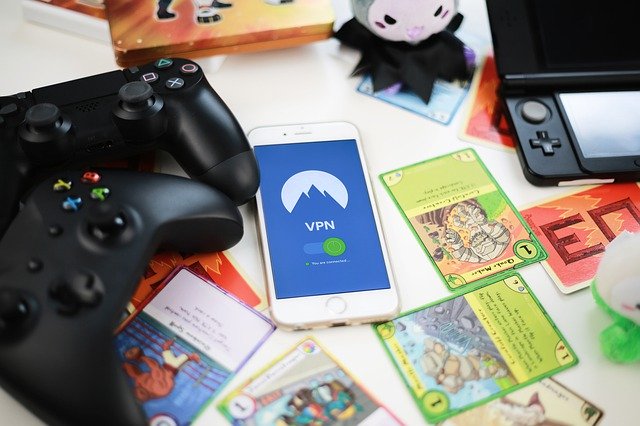Gambling and Betting with a VPN: Here's the legal position
There are two divergent trains of thought when it comes to using a Virtual Private Network (VPN). Many argue that if you haven’t done anything wrong, why bother with a VPN? The other line of thought argues that government and Internet Service Providers use a lot of surveillance and you can’t take enough measures you can take to… Read More »

There are two divergent trains of thought when it comes to using a Virtual Private Network (VPN). Many argue that if you haven’t done anything wrong, why bother with a VPN? The other line of thought argues that government and Internet Service Providers use a lot of surveillance and you can’t take enough measures you can take to safeguard your privacy. Another popular use of VPNs is to access geo-blocked content. So, for example, if you are in the US and want to access UK Netflix shows, you can do so via VPNs. Or if you are in a country where sports betting is prohibited but you want access sport.netbet.com.
This brings us to a popular question within the betting community is whether gambling or placing a wager using a VPN is considered illegal. Should you avoid this practice? Since all online casinos and gambling companies check your location when you access their site and often have geo-locked access, they are only allowed to operate in some geographies, the question of legality is a tricky one.
Let’s take a look at what VPNs are, how you can access one, and what is the legal position on their use.
What is a VPN?
A Virtual Private Network adds an extra layer of security or anonymity to all your activities on the internet. Its use is not just restricted to the internet at home or at work, you can even access one from public Wi-Fi. The VPN essentially hides your internet traffic activities from the ISP.
It works by connecting remote websites to each other on the internet using a ‘tunnel’. The tunnel is basically a secure portal. It links your connection to websites in a way that prevents anyone from knowing what you are doing or where you are visiting. The VPN can make it seem that you are from an entirely different location or company. It is perhaps one of the most anonymous and secure ways to use the internet.
However, if you have accidentally downloaded malware on your computer that gives foreign access to your computer then they will be able to view what you are upto, no matter how many apps and misdirection techniques you use. So, the first step before using a VPN is to use some good quality anti-virus software that can scan your network to check for malware and delete it.
Is it illegal to use VPNs?
Virtual Private Networks are of course safe to use and in most of the cases, entirely legal. However, there are many countries that have banned the use of VPNs completely. A VPN enables you to access websites that are banned such as Twitter, Snapchat or Facebook. So it is not surprising that many in positions of authority have clamped down on their use.
You may have heard that China, North Korea and Russia have more censorship and surveillance on the activities of users.
There are many countries in the world where VPNs are either controlled by the governments or their status is illegal. Here are the ones where VPNs is illegal
China: VPNs are not easy to use. They aren’t illegal but the Government has threatened to ban all VPNs and even removed VPN apps from the Apple Store.
Yet, there is no precedent of anyone being charged with a crime of using a VPN. China also has no laws on the books forbidding individuals from using VPN.
Iran: The only legal VPNs are the ones registered with the government.
North Korea: Only a handful of VPNs are allowed.
Oman: Most VPN providers are blocked, yet it is not illegal to use them.
Russia: VPN traffic is allowed but VPNs are blocked.
Turkey: A majority of VPN sites are blocked but there is no law against the use.
UAE: VPNs are only considered illegal ‘if they are used to commit a crime’
India: There are no laws around the use of VPNs in India, so long as they are not used for illegal activities. Some of the most popular uses of VPNs is to access pornographic content or torrents.
Gambling or betting using a VPN service
Sports bettors might be curious to know if they can access a URL using a VPN. The fact that a site like sport.netbet.com is not geo-locked means that you can place bets on your sport of choice be it cricket, football, tennis, esports, baseball, rugby, etc. without fearing legal action.
From the perspective of the betting site, they don’t concern themselves with your motives for using a VPN. Many online betting sites or gambling sites have terms that state you cannot use a VPN to hide your identity. Many other betting sites now use software to identify bettors who are using VPNs.
One of the reasons is that many gamblers and bettors try to hide their IP addresses using a VPN and making several aliases to claim multiple instances of a welcome bonus. This falls under the category of bonus abuse and you should steer clear of this.
So ideally, it is not advisable to use a VPN with any betting or gambling site. Your account will be terminated instantly if the provider discovers your little secret.
